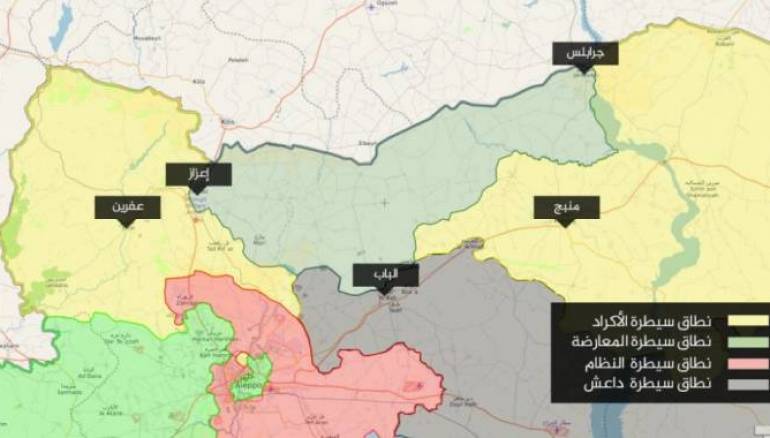Authorities in the Kurdish-administered north of Syria have enacted a heavy tax on locals and businesses, pushing many to leave the northern city of Afrin near Aleppo.
Speaking to Iqtissad on the condition of anonymity, the owner of a clothing shop said he left Afrin for Aleppo due to the unreasonable taxes placed on locals.
He added that the Kurdish administration imposes taxes on locals unfairly, without criteria or limits. “Moreover, there is no electricity, we buy it from generators … all money we pay is only for letting us move from and within Afrin,” he said.
Abdul-Rahman Aabo, a member of central committee of Kurdistan Democratic Party-Syria in Afrin city, said that since 2012, when the Assad regime handed over the city to Kurdish control, authorities endorsed tough policies and unfair laws at the political and economic levels to collect as much revenue as possible.
He detailed that Kurdish authorities have forced taxes on workshops and even on small shops and fields, especially olive fields and olive oil mills.
Aabo explained that the goal of the procedures is to destroy the city’s industrial sector in order to push people, especially young men, to leave the city.
Dr. Ahmed Yusuf, an economics expert at Afrin University explained to Iqtissad that due to war and exceptional conditions in Aleppo for the last five years, most workshops and small factories moved to Afrin due to its relative stability. But after the improvement in conditions in Aleppo, many workshops decided to move back to the regime-controlled Western side of the city.
“In Afrin, due to movement of industry and small projects [as well as] improvement in agriculture, the city witnessed a significant economic jump,” Dr. Yusuf explained, adding that more that 30 percent of new construction occurred in the last five years.
This article was edited by The Syrian Observer. Responsibility for the information and views set out in this article lies entirely with the author.


